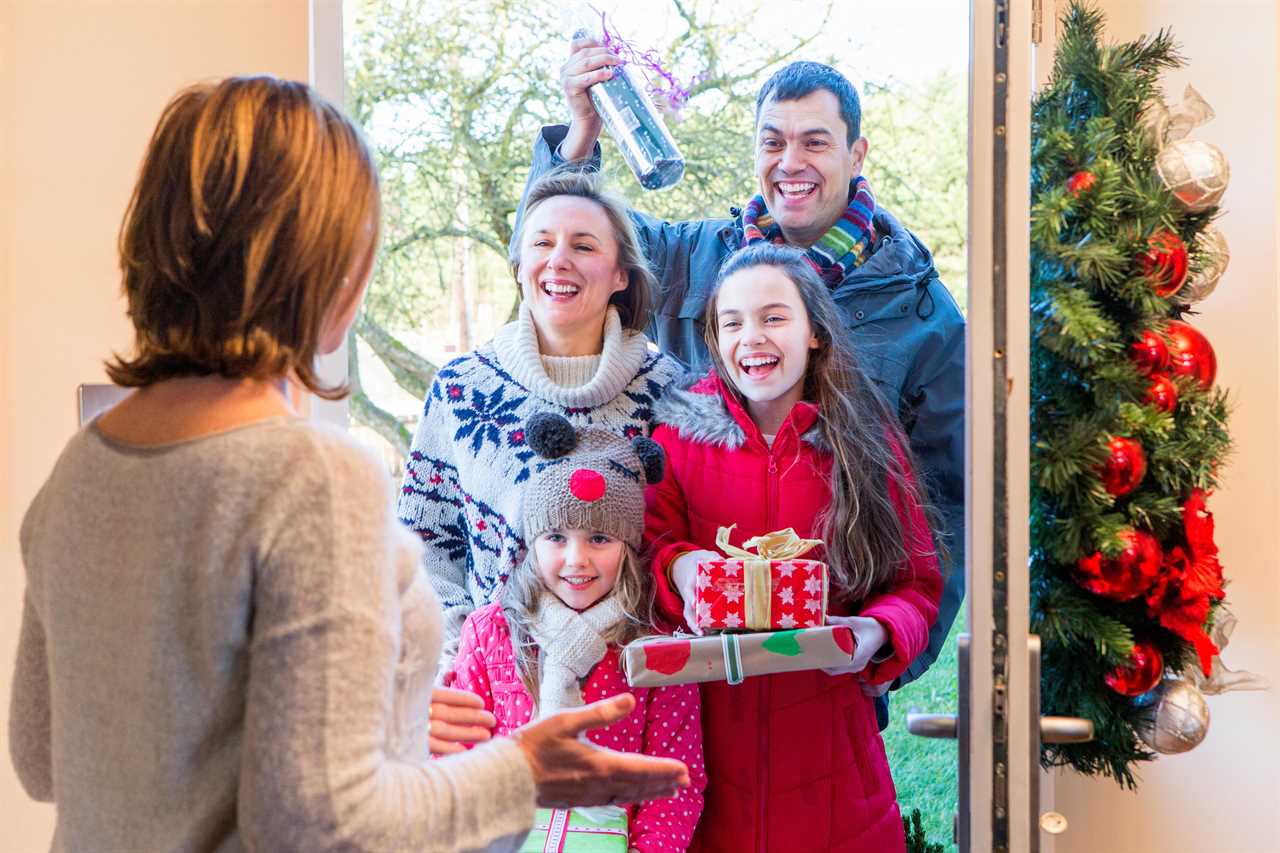CHRISTMASES for the next five years may be hampered by Covid, an expert has warned.
The events of last December – when the Prime Minister effectively had to cancel Christmas due to high Covid rates – will forever haunt Brits.

But a leading scientist, Tim Spector, professor of genetics at King’s College London, has suggested the same could happen again and we can’t get too complacent in a world with the coronavirus.
Prof Spector has been tracking the size of the outbreak since it started, leading the ZOE Covid Symptom Study.
When asked if he thought “enough was being done to avoid lockdowns and allow people to safely celebrate Christmas this year”, he said “no, we’re not doing enough”.
He said “it’s not just this Christmas”, but “Christmases for the next five years” to be realistically concerned about, now that we understand more about the virus.
Speaking at a Royal Society of Medicine virtual briefing, Prof Spector said that during last year’s festive period, “we just thought we have to get through this winter and it’ll be fine”.
“That’s clearly turning out not to be the case as we realise that vaccines alone, even in countries that have got higher vaccination rates than ours, are not the sort of final solution to this, that we need a combination of measures,” he warned.
While the vaccines are performing with efficacy higher than scientists dreamed, they will not prevent every case of serious disease or Covid death.
Prof Spector said that although Covid “will become milder in the next five to seven years”, it will “become like a permanent flu outbreak we have to deal with”.
“As we go into this long endemic phase, we need to somehow control Covid.
“It’s a combination of vaccines and medicine, but also we need to keep some measures in place to keep numbers down and we’re not doing that.
“That’s why, in the past three months, we’ve had the highest rates, not only for cases but hospitalisations, in Western Europe.
“How high we want those rates to be is determined by our complacency and our relaxation to some of the rules we had in place that last year, I thought were over the top, and now this year I think are insufficient.”
Last year families were slapped with devastating last minute rules that meant two households were banned from getting together for festivities.
This year, there are no planned restrictions.
Cases are higher than they were this time last year. But hospitalisations and deaths are being suppressed by the vaccines.
Boris Johnson has said he could see no evidence of a need to take any action to spoil festivities this year.
But the Government has warned of Christmas Covid restrictions if booster jab uptake is poor, telling the public it was a “national mission”.
More than nine million booster shots have been given in England so far and the NHS has sped the programme up by allowing people to book their appointment slot in advance.
England’s deputy chief medical officer has said Christmas, “and indeed all of the darker winter months, are potentially going to be problematic”.
Professor Jonathan Van-Tam said last week whether a lockdown can be prevented will depend on human behaviour, caution and vaccine uptake.
But Prof Spector’s study today reported that cases were coming down drastically.
The ZOE study said there were 72,546 new daily symptomatic cases of Covid in the UK on average, a decrease of 18 per cent from 88,592 per day last week.
Prof Spector said: “This drop in cases is the largest weekly decline we’ve seen all year, and is being driven by a sustained fall in cases among children over the last two weeks.
“However, cases are still high and, worryingly, we’re still seeing high death rates as Covid takes up to 8 per cent of hospital beds.
“To keep numbers down it’s crucial for everyone eligible to get their booster jabs, even if they have recently had a Covid infection, as we’ve shown natural infections do not always produce an immune response and protection.”
On average one in 58 people in the UK currently have symptomatic Covid, and the R rate is 0.9, ZOE estimates.






